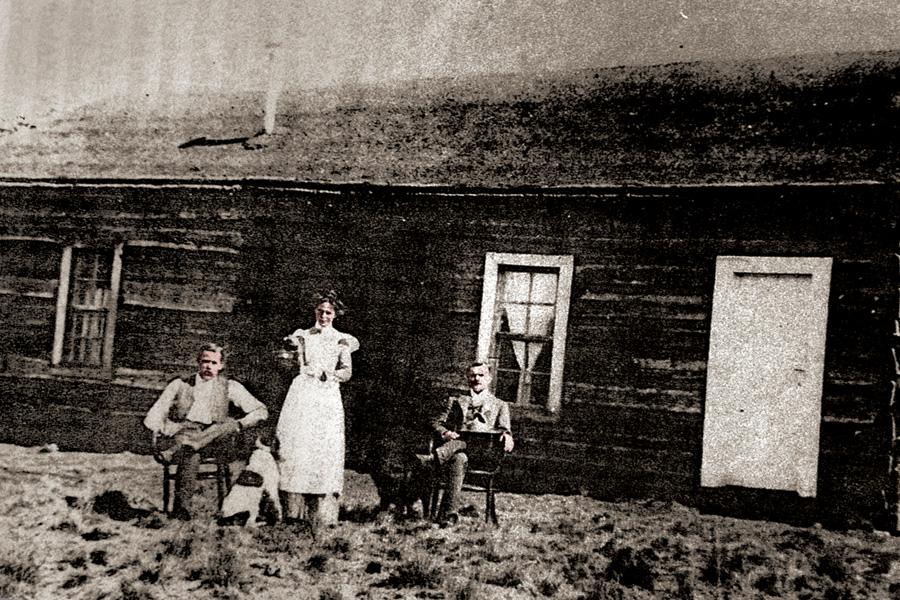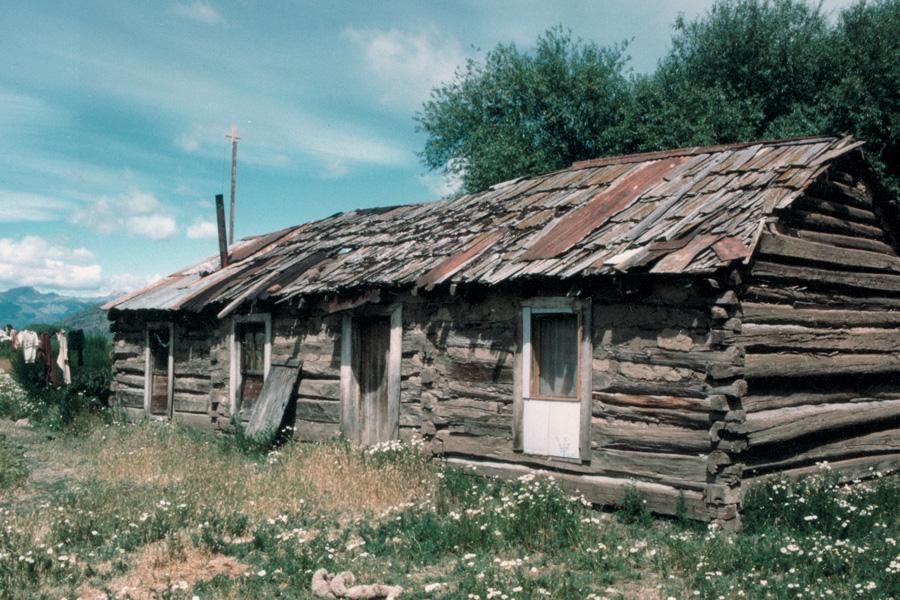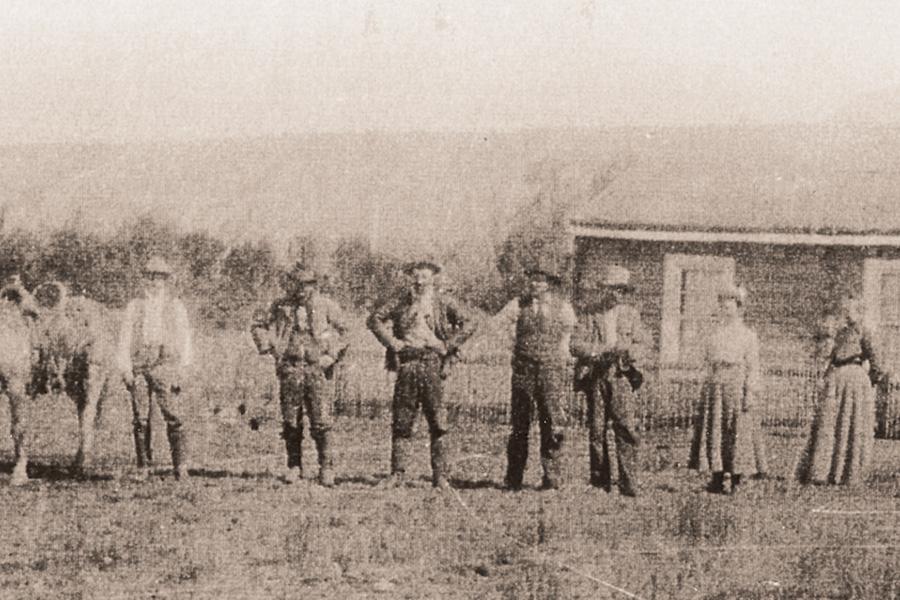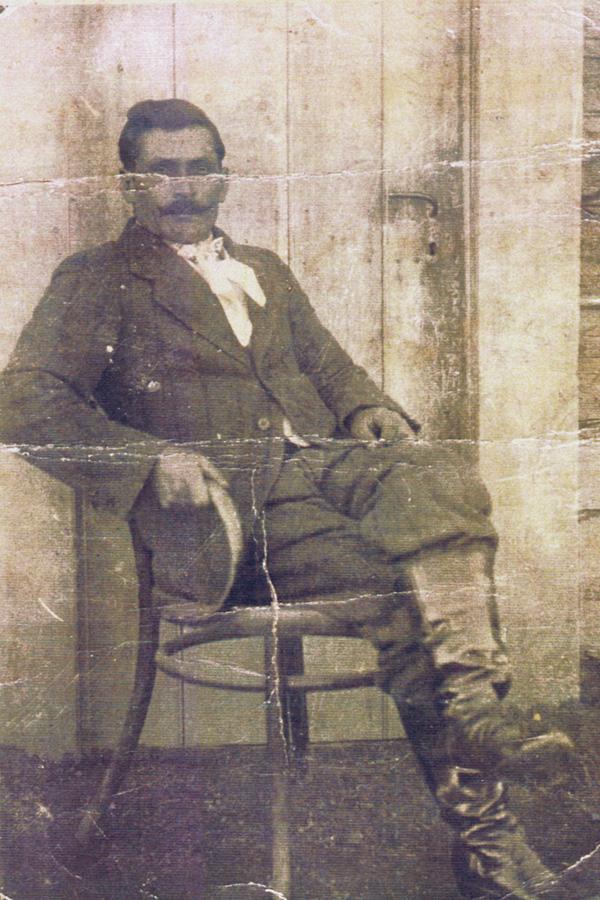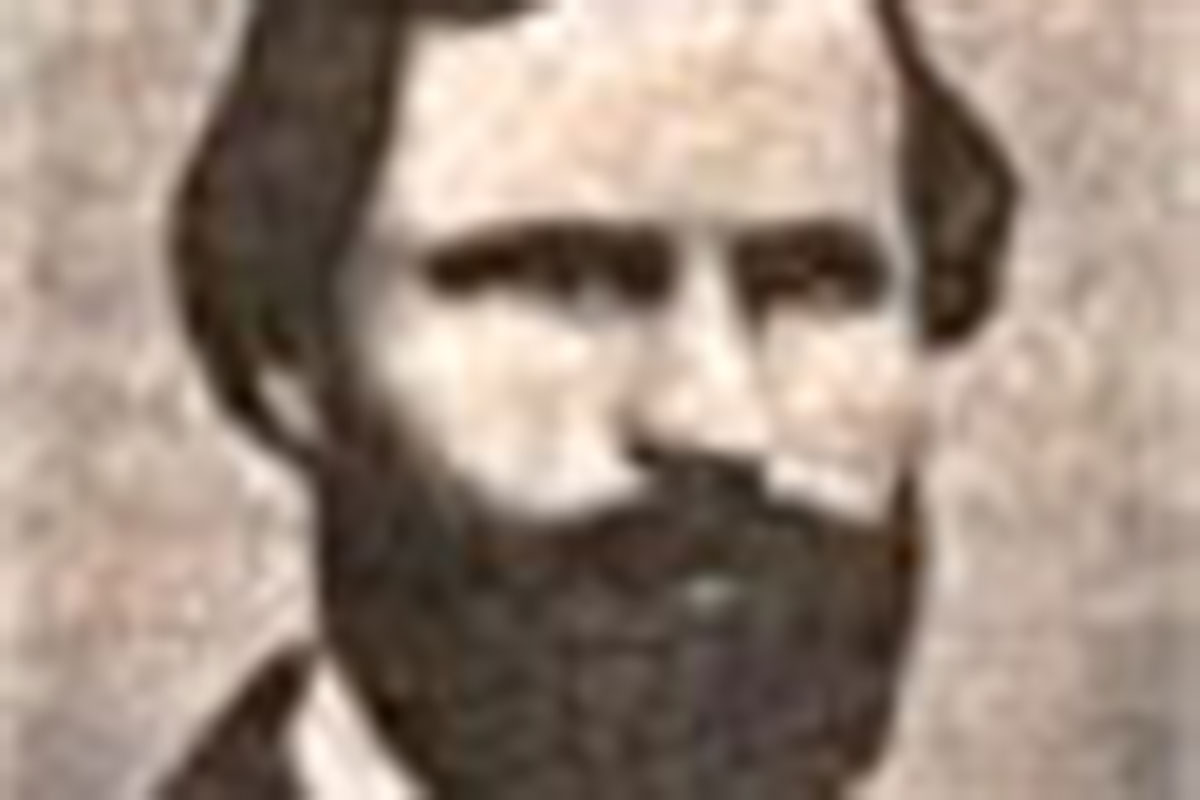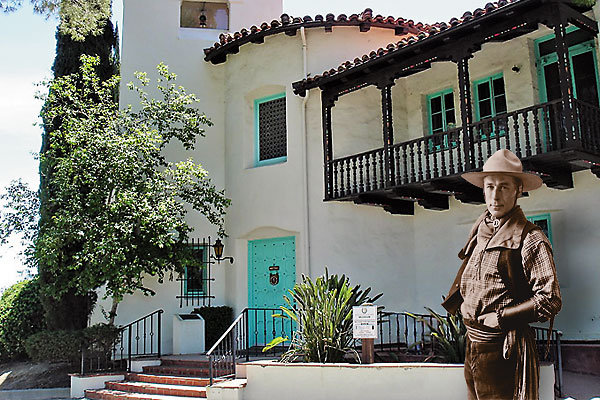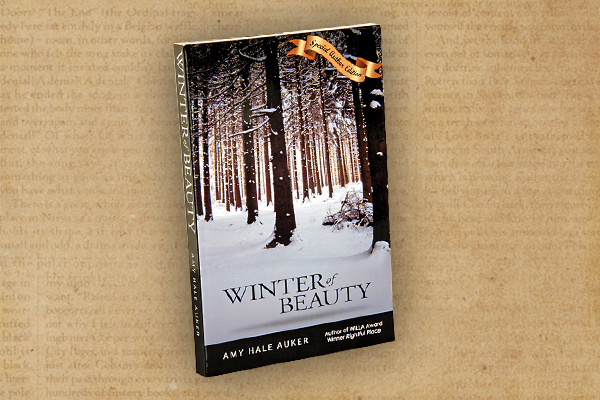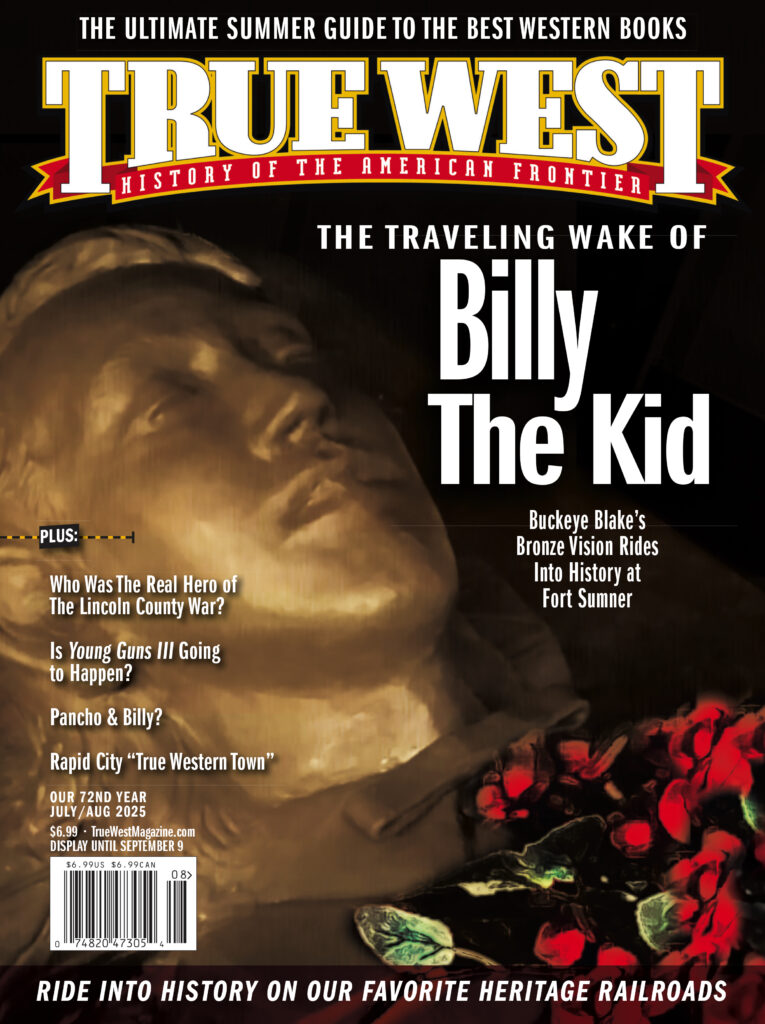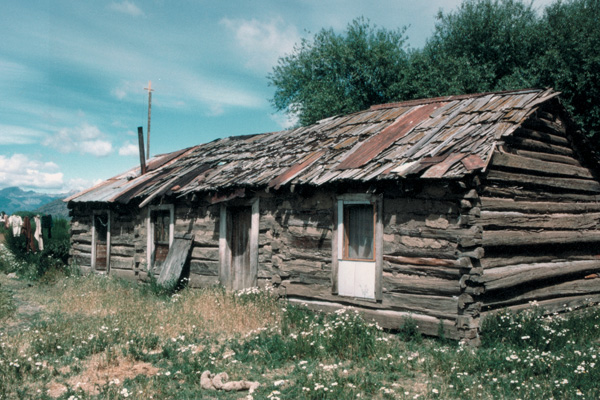 Buenos Aires, 1901
Buenos Aires, 1901
When Butch Cassidy, the Sundance Kid and Ethel Place arrived in Buenos Aires in late March 1901, they undoubtedly hoped to put their past behind them. But they hadn’t counted on the tenacity of the Pinkertons. The outlaw’s past would continue to haunt them.
Like many other freshly landed North Americans, the three outlaws found their way to George Newbery, the U.S. vice-consul. Calling themselves James “Santiago” Ryan, Harry “Enrique” A. Place and Place’s wife, Ethel, they said they were looking for ranch land to homestead. They were not impoverished. Soon after landing they had deposited $12,000 in gold notes (about $240,000 today) at the Banco de Londres y Río de la Plata. Unaware of his visitors’ true identities, Newbery—who was a land developer himself—told them there were good homesteading opportunities in Patagonia.
That may be what attracted them to Argentina in the first place. They could have learned of the country’s ranching opportunities from newspaper or magazine stories or from American cattlemen who had gone there to buy breeding bulls.
To the far south
From Buenos Aires Butch, Sundance and Ethel headed south to Chubut, a territory roughly the size of Utah, where humans were far outnumbered by livestock.
The Wild Bunch trio settled in the Cholila Valley, building their ranch on the eastern shore of the Río Blanco, practically in the foothills of the Andes. The location had advantages other than good grass and scenery. It was close to the Chilean border, more than 400 miles from the nearest rail line, and it lacked telegraph service, the far-reaching extremity of the outlaws’ most implacable foe, the Pinkerton National Detective Agency.
Soon after making camp (the trio lived in a canvas tent until their log ranch buildings were erected), Ryan and Place, as they were known locally, bought 16 colts for 855 pesos (about $7,500 today), which they paid for with a check drawn on their funds in Buenos Aires. In October 1901 they registered three brands with the territorial government: one for Ryan, a second for Place and a third for Ryan and Place.
The outlaws’ ranching skills and affability gained Ryan and Place the confidence and friendship of their fellow settlers and the authorities.
In February 1902, the three North Americans returned to Buenos Aires. Sundance and Ethel caught a ship to the U.S., but Butch remained in the capital, visiting government offices to obtain legal title to their land. On May 16, Butch and a number of his neighbors signed a joint letter to the Argentine government, requesting title to 625 hectares apiece, the usual amount of land granted under the homesteading laws. Sundance was still out of the country, but he must have come back by October 4, 1902, because on that date he filed a petition in Buenos Aires to buy 2,500 hectares (one square league) in the Cholila Valley.
Back at the ranch
By mid-1902, the dead of Patagonian winter, Butch was again in Cholila, overseeing the ranch. In an August 10 letter to Mrs. Davies, the mother-in-law of his outlaw pal Elzy Lay, he reported, “I like the place better everyday. I have 300 cattle, 1500 sheep, and 28 good Saddle horses, 2 men to do my work, also a good 4-room house, wearhouse [sic], stable, chicken house and some chickens . . . . [T]he country is first class. The only industry at present is stock raising (that is in this part) and it can’t be beat for that purpose, for I have never seen a finer grass country, and lots of it hundreds and hundreds of miles that is unsettled and comparatively unknown, and where I am it is a good agricultural country.”
Perhaps he wanted to emphasize just how far he was from Utah. But his new home may not have seemed so distant had he known the dreaded Pinkertons had already discovered that he and Sundance were in Argentina and would soon send an agent to Buenos Aires to ascertain their whereabouts and alert the local police.
While the Pinkertons were scheming, more North Americans found their way to the Cholila Valley. In 1903, John Commodore Perry and his family began homesteading a small ranch just south of Butch and Sundance. Perry had been the first sheriff of Crockett County, Texas, but cleared out when the region became too crowded. If Perry learned of Butch and Sundance’s outlaw past, he didn’t say a word.
Possibly to cater to the valley’s growing population, Butch opened a small store on the ranch and hired a young man named David Moore to help run it. A visitor who spent the night with them in 1904 recalled that their home was simply furnished, with pictures in cane frames, wallpaper made of clippings from North American magazines, beautiful weapons and lassos of braided horsehair. Neighbors recalled that Ethel kept perfumed water in the wash basins, spoke Spanish, and rode and shot like a man.
Governor Lezana comes calling
Butch, Sundance and Ethel’s standing in Cholila was such that when the newly appointed Chubut governor, Dr. Julio Lezana, paid a visit to the valley in March 1904, he was a guest at their ranch. Sundance was on a bull-buying trip, although decades later one Cholila old timer recalled that at the reception, Sundance played a zamba on his guitar while the governor danced with the outlaw’s fetching wife. A newspaper, however, said Sundance was away, and it was the governor on the guitar and Butch dancing with a neighbor’s daughter.
Lezana’s visit was not all pleasure. He had heard complaints about a North American colony U.S. Vice-Consul Newbery was proposing on a large swath of land north of Cholila. The North Americans already in Cholila were opposed and made their sentiments known. The day after leaving Cholila, Lezana sent a telegram to Buenos Aires, suspending authorization to go ahead with the colony. For whatever reason, the settlers already in Cholila felt their interests were at odds with those of the developers. Perhaps they wanted the land for themselves. A few months later, Butch and Sundance and several of their neighbors signed a new petition to obtain permanent title to the lands they were occupying.
Later that year, Sundance and Ethel returned to the U.S., where they visited the St. Louis World’s Fair. By late 1904, they were back in Cholila.
While Governor Lezana had been enjoying his stay in Cholila, an incident 300 miles east set in motion a chain of events that put an end to the Wild Bunch trio’s Patagonian idyl. Robert Evans (also called Hood) and a young man known as Grice (or Gray) stole 5,000 pesos from an Argentine Southern Land manager while accompanying his wool caravan. The police called in Butch, asking if he had supplied Evans with a revolver. Nothing came of the matter, but in January 1905, two young men, probably Evans and Grice, held up the Banco de Tarapacá y Argentino in Río Gallegos, 700 miles south of Cholila. The newspapers reported the bandits were two Yankees. Although Butch and Sundance had fairly good alibis, the Pinkertons had told the Argentine authorities about the two notorious bandits and had predicted that sooner or later they would return to their old ways.
An order was soon issued to local police officer Edward Humphreys to bring Butch and Sundance in for questioning. Humphreys was friendly with the two Americans, and not only did he dither several weeks in executing the order, but he was also suspected of tipping them off, perhaps via Daniel Gibbon, the outlaws’ best friend in the region. The upshot was that Butch and Sundance made themselves scarce and proceeded to unload their Cholila holdings. Humphreys was fired, but when his replacement came looking for the outlaws, they had abandoned their ranch and were hiding in the mountains above Cholila. The next month they fled across the border to Chile.
In December 1905, Butch, Sundance and two others—thought by some historians to have been Ethel Place and Robert Evans—robbed a bank in Villa Mercedes in West Central Argentina and escaped back over the Andes to Chile. Shortly thereafter, Ethel sailed to the U.S. and vanished. Sundance returned briefly to Cholila, maybe accompanied by Evans, to finalize the sale of some livestock, then left.
A few years after the Wild Bunch trio’s departure, Rómulo Sepúlveda and his family, emigrants from Chile, settled on the Cholila estancia. They occupied the property until the late 1990s, when Aladín Sepúlveda, the last descendant to live there, died. Today, the ranch is abandoned, but there are plans to restore it.
The Cholila Valley is now a destination for hikers and fly fishermen, and some of the estancias take in tourists. Leleque, where Butch and Sundance bought their livestock, is owned by Benetton, the Italian clothing company, which recently opened a museum there. One exhibit is devoted to the famous North American outlaws who ranched quietly in the valley a century ago.
Marcelo Gavirati is a historian at the Centro Nacional Patagónico (CENPAT), in Puerto Madryn, Chubut, Argentina. He is the author of Buscados en la Patagonia: Butch, Sundance, Ethel, Wilson y Evans (1999).
Photo Gallery
– Copyrighted by Paul D. Ernst Photo –
– Photo by Anne Meadows –
– Courtesy Marcelo Gavirati –
– Courtesy Jones family –
– Courtesy Melanie Acevedo –


